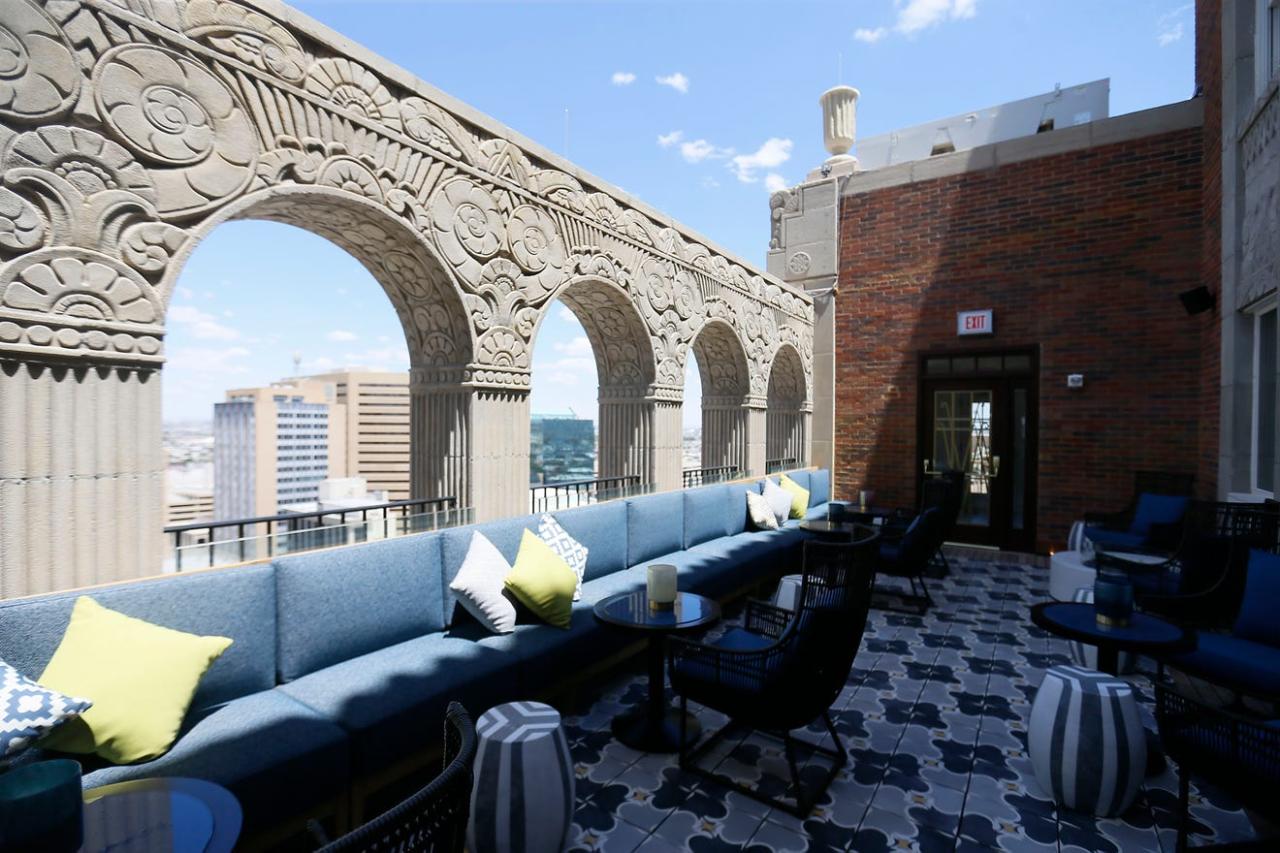In an era of sleek, modern design and standardized amenities, a growing number of travelers are seeking something more meaningful from their accommodations. They are drawn to the stories, the character, and the timeless elegance of historic hotels. These establishments are not merely places to sleep; they are living museums, each with a unique narrative etched into its very walls. From grand palaces to converted monasteries, these hotels offer a captivating blend of old-world charm and modern luxury, transforming a simple stay into a journey through time. This comprehensive guide will explore the allure of historic hotels, what makes them so special, and how to choose the perfect one for your next memorable escape.
Why Choose a Historic Hotel?

The appeal of historic hotels goes far beyond their antique furniture and classic architecture. It is an emotional and intellectual experience rooted in a desire for authenticity and connection to the past.
A. A Glimpse into History: Staying in a historic hotel is a tangible way to connect with the past. You can sleep in a room where a famous author once wrote, walk through halls where world leaders once met, or dine in a ballroom that hosted iconic events. Each creak of the floorboards and every intricate detail tells a story, making the stay feel like a chapter in a much larger history book.
B. Unmatched Architectural Beauty: Historic hotels are often masterpieces of design and craftsmanship. They showcase architectural styles from different eras, whether it’s the ornate Victorian facade of a 19th-century grand hotel, the Art Deco elegance of a 1920s skyscraper, or the rustic charm of a centuries-old inn. These buildings are a visual feast, offering a unique aesthetic that mass-produced modern hotels simply cannot replicate.
C. A Sense of Place: A historic hotel is intrinsically linked to its location. It often reflects the culture, history, and traditions of the city or region it inhabits. Staying in such a hotel provides a deeper understanding and appreciation of the destination, offering a more authentic and immersive travel experience than staying in a generic, cookie-cutter hotel.
D. Exceptional Service and Legacy: Many historic hotels have a legacy of hospitality that spans generations. The service is often rooted in tradition and a profound respect for guest experience. The staff are not just employees; they are often custodians of the hotel’s history, eager to share stories and recommendations that are unique to the establishment. This legacy of personalized service creates a warm and welcoming atmosphere.
E. Distinctive Character and Atmosphere: Unlike modern hotels that may feel sterile and uniform, historic hotels are full of character. Each room might be slightly different, with unique layouts and decor. The public spaces, such as grand lobbies, cozy libraries, and ornate bars, are designed to encourage conversation and relaxation, creating a distinct and memorable atmosphere.
What Defines a Historic Hotel?
A hotel’s age alone doesn’t make it historic. A true historic hotel is a building that has been meticulously preserved and thoughtfully restored, balancing the preservation of its original character with the integration of modern amenities.
A. Architectural Preservation: A key characteristic is the commitment to preserving the original architecture. This includes restoring facades, preserving original woodwork, plasterwork, and stained glass, and maintaining the building’s historical layout. Restorations are often guided by historical societies and preservation experts to ensure authenticity.
B. Integration of Modern Comforts: While a historic hotel celebrates the past, it must also provide the comforts and conveniences of the present. This means a seamless integration of high-speed Wi-Fi, modern climate control, updated plumbing, and contemporary security systems without compromising the historical ambiance. The best historic hotels achieve this balance with a subtle touch, hiding technology within period-appropriate decor.
C. Storytelling and Heritage: A historic hotel is often a storyteller. It will have a clear and well-documented history that is shared with guests. This could be through historical photos and artifacts displayed in the lobby, guided tours of the property, or even a book detailing its history in each room. The staff are also often well-versed in the hotel’s past.
D. Unique Guest Rooms: The rooms in a historic hotel are rarely uniform. They might vary in size, shape, and decor, reflecting the building’s original design. Some rooms might feature original fireplaces, vaulted ceilings, or unique window layouts. This individuality adds to the charm and makes each stay a distinct experience.
E. Original Public Spaces: The public areas of a historic hotel are often its most magnificent features. The lobby might be a grand, multi-story space with elaborate chandeliers and marble floors. The bar could be an original pub or a converted ballroom. These spaces are social hubs that serve as a showcase for the hotel’s historical grandeur.
Finding the Perfect Historic Hotel

Choosing a historic hotel requires a bit of research and an understanding of what you’re looking for.
A. Utilize Specialized Directories: There are organizations and websites dedicated to historic hotels, such as Historic Hotels of America or the National Trust for Historic Preservation. These resources are an excellent starting point and provide detailed information about each hotel’s history, architecture, and amenities.
B. Search by Architectural Style: If you have a passion for a specific era, you can search for hotels by architectural style. For example, a search for “Art Deco hotels” or “Victorian-era hotels” will lead you to properties that align with your interests.
C. Read Guest Reviews and Historian Accounts: When reading reviews on sites like TripAdvisor, look for comments that mention the hotel’s historical charm, the quality of the restoration, and the staff’s knowledge of its history. Also, look for articles by travel writers or historians who have stayed at the hotel.
D. Consider the Location and Context: A historic hotel’s location is often tied to its story. Is it in a historic district, a former industrial area, or a natural landmark? Understanding the hotel’s context can enhance your appreciation for its heritage. A former grand railway hotel, for example, tells a different story than a historic hotel on a former plantation.
E. Call the Hotel Directly: If you have specific interests, such as a desire to stay in a room with a known historical connection, calling the hotel’s front desk or concierge is the best way to get accurate information. They can often tell you about their most historically significant rooms or features.
F. Look for Awards and Recognitions: Many historic hotels are recognized by local, national, or international preservation organizations. Look for awards or plaques that signify their commitment to heritage. This is a strong indicator of a hotel’s authenticity and dedication to its history.
The Historic Hotel Experience
The experience of a historic hotel extends far beyond the four walls of your room. It is a journey that can be enriched by engaging with the hotel’s unique offerings. Many historic hotels provide:
- Guided Tours: A great way to learn about the building’s history and architectural features.
- Historical Exhibits: Lobby spaces, libraries, and hallways are often adorned with photos, artifacts, and documents that tell the hotel’s story.
- Period-Specific Dining: Some hotels offer dining experiences that reflect a particular historical era, with menus and decor to match.
- Unique Events: The grand ballrooms and elegant parlors of historic hotels are often used for special events, from classical concerts to themed galas, allowing guests to experience the spaces as they were originally intended.
This immersive approach to hospitality is what sets historic hotels apart. They don’t just provide a place to sleep; they offer a chance to step back in time and be a part of a continuing narrative. It is a form of travel that is both educational and deeply romantic, appealing to those who seek more than just convenience from their journeys.
Conclusion
In a world that is moving at an ever-increasing pace, historic hotels stand as a testament to the enduring value of history, craftsmanship, and a commitment to legacy. They offer an escape from the sterile uniformity of modern travel and a chance to immerse oneself in a story. By choosing a historic hotel, you are not just booking a room; you are becoming a temporary custodian of a piece of history. You are supporting the preservation of architectural treasures and participating in a tradition of hospitality that has been refined over generations.
For the discerning traveler, the charm of a historic hotel is found in its imperfections, its unique quirks, and the stories it whispers through its corridors. It is in the grand staircases that have borne the footsteps of countless guests, the antique furnishings that have witnessed eras change, and the personalized service that reminds you that you are not just a number, but a valued guest. The movement towards historic hotels reflects a deeper cultural yearning for authenticity and a connection to our roots. It’s a journey that enriches the mind and the soul, proving that the most luxurious experiences are often the ones that are steeped in history and have a story to tell. So, the next time you plan a getaway, consider checking into a historic hotel. You might find that the most memorable part of your trip isn’t just where you went, but when you went.









Discussion about this post